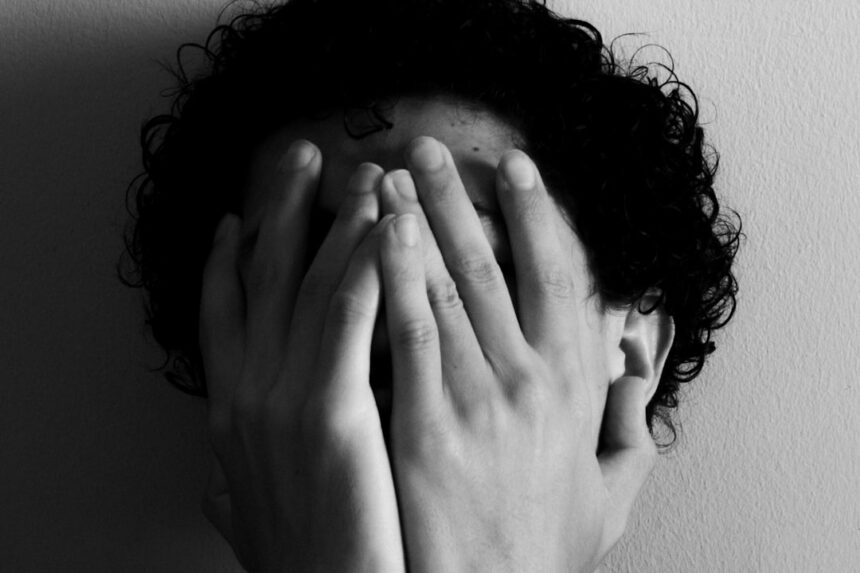Depersonalization and derealization disorder (DPDR) is a complex mental health condition that can leave you feeling detached from your own thoughts, feelings, and sense of self. You may experience a sense of unreality regarding your surroundings, as if the world around you is a dream or a movie. This disorder can be disorienting and frightening, often leading to confusion about your identity and reality.
It is essential to understand that these experiences are not uncommon; many people may encounter fleeting moments of depersonalization or derealization during times of stress or anxiety. However, when these feelings become persistent and interfere with daily life, they may indicate a more serious issue. The causes of DPDR can vary widely, often stemming from traumatic experiences, extreme stress, or anxiety disorders.
You might find that your symptoms are triggered by specific events or situations that evoke strong emotions. Understanding the underlying factors contributing to your condition is crucial for effective management and recovery. It’s important to recognize that you are not alone in this experience; many individuals face similar challenges, and there is hope for healing and regaining a sense of normalcy.
Key Takeaways
- Depersonalization and derealization disorder is a mental health condition characterized by feeling detached from oneself and the surrounding environment.
- Symptoms of depersonalization and derealization disorder include feeling like an outside observer of one’s thoughts and actions, and experiencing a sense of unreality or detachment from the world.
- Seeking professional help, such as from a psychiatrist or therapist, is important for diagnosing and treating depersonalization and derealization disorder.
- Psychotherapy, such as cognitive behavioral therapy, can be an effective treatment for depersonalization and derealization disorder.
- Medications, such as antidepressants or anti-anxiety drugs, may be prescribed to help manage symptoms of depersonalization and derealization disorder.
Recognizing the Symptoms of Depersonalization and Derealization Disorder
Recognizing the symptoms of depersonalization and derealization disorder is the first step toward seeking help and finding relief. You may experience feelings of detachment from your body or thoughts, as if you are observing yourself from outside your own skin. This sensation can be unsettling, making it difficult for you to connect with your emotions or understand your reactions to situations.
Additionally, you might feel as though the world around you is distorted or unreal, leading to a sense of disconnection from your environment. Other common symptoms include difficulty concentrating, memory problems, and a general sense of confusion. You may find it challenging to engage in conversations or activities that once brought you joy.
These symptoms can lead to increased anxiety and frustration, as you grapple with the feeling of being trapped in a reality that feels foreign. It’s essential to pay attention to these signs and acknowledge their impact on your life, as recognizing them can empower you to take the necessary steps toward recovery.
Seeking Professional Help for Depersonalization and Derealization Disorder

If you find yourself struggling with the symptoms of depersonalization and derealization disorder, seeking professional help is a vital step in your journey toward healing. Mental health professionals can provide you with the support and guidance needed to navigate this challenging experience. You may feel hesitant to reach out for help, but it’s important to remember that mental health issues are just as valid as physical health concerns.
A therapist or psychiatrist can help you understand your symptoms better and develop a personalized treatment plan. When seeking professional help, consider looking for a mental health provider who specializes in dissociative disorders or trauma-related conditions. They can offer you tailored strategies and interventions that address your unique needs.
During your initial sessions, you will likely discuss your symptoms, triggers, and any past experiences that may have contributed to your condition. This process can be daunting, but it is an essential part of understanding yourself and finding effective ways to cope.
Psychotherapy as a Treatment for Depersonalization and Derealization Disorder
| Treatment Type | Success Rate | Duration |
|---|---|---|
| Cognitive Behavioral Therapy (CBT) | 60-70% | 12-16 weeks |
| Dialectical Behavior Therapy (DBT) | 50-60% | 6-12 months |
| Psychodynamic Therapy | 40-50% | 6-12 months |
Psychotherapy is often considered one of the most effective treatments for depersonalization and derealization disorder. Through various therapeutic approaches, you can explore the underlying issues contributing to your symptoms while developing coping strategies to manage them. Cognitive-behavioral therapy (CBT) is particularly beneficial, as it helps you identify negative thought patterns and replace them with healthier perspectives.
This process can empower you to regain control over your thoughts and feelings.
This technique encourages you to focus on the present moment, fostering a greater connection between your mind and body.
By practicing mindfulness, you can learn to observe your thoughts without judgment, reducing the intensity of depersonalization and derealization experiences. Engaging in psychotherapy can provide you with valuable tools for understanding your condition and navigating the challenges it presents.
Medications for Depersonalization and Derealization Disorder
While psychotherapy is often the primary treatment for depersonalization and derealization disorder, medications may also play a role in managing symptoms. Antidepressants, particularly selective serotonin reuptake inhibitors (SSRIs), have been found to be effective for some individuals experiencing DPDR. These medications can help regulate mood and alleviate anxiety, which may reduce the frequency and intensity of dissociative episodes.
In some cases, anti-anxiety medications may be prescribed to help manage acute symptoms of anxiety that accompany depersonalization and derealization experiences. However, it’s essential to work closely with a healthcare provider when considering medication options, as they can help determine the most appropriate course of action based on your specific needs and circumstances. Remember that medication is not a standalone solution; it should be used in conjunction with therapy for optimal results.
Self-Help Strategies for Managing Depersonalization and Derealization Disorder

In addition to professional treatment, there are several self-help strategies you can incorporate into your daily routine to manage depersonalization and derealization disorder effectively. One approach is grounding techniques, which help anchor you in the present moment when feelings of detachment arise. You might try focusing on your senses—what you can see, hear, touch, taste, or smell—to reconnect with reality.
Another helpful strategy is journaling about your experiences. Writing down your thoughts and feelings can provide clarity and insight into your condition while serving as an emotional outlet. You may also find it beneficial to engage in creative activities such as art or music, which can help express emotions that may be difficult to articulate verbally.
These self-help strategies can empower you to take an active role in managing your symptoms while complementing professional treatment.
Lifestyle Changes to Support Treatment for Depersonalization and Derealization Disorder
Making lifestyle changes can significantly impact your overall well-being and support your treatment for depersonalization and derealization disorder. Prioritizing self-care is essential; ensure you are getting enough sleep, eating a balanced diet, and engaging in regular physical activity. Exercise has been shown to reduce anxiety and improve mood, which can be particularly beneficial for individuals experiencing DPDR.
Additionally, consider incorporating relaxation techniques into your daily routine. Practices such as yoga, meditation, or deep breathing exercises can help reduce stress levels and promote a sense of calmness. By creating a supportive environment for yourself through these lifestyle changes, you can enhance your ability to cope with symptoms while fostering resilience in the face of challenges.
Managing Stress and Anxiety in Depersonalization and Derealization Disorder
Stress and anxiety often exacerbate the symptoms of depersonalization and derealization disorder. Therefore, learning effective stress management techniques is crucial for maintaining emotional stability. You might explore various relaxation methods such as progressive muscle relaxation or guided imagery to help alleviate tension when stress levels rise.
Establishing a routine that includes regular breaks for self-care can also be beneficial in managing stress. Whether it’s taking short walks outside or engaging in hobbies that bring you joy, these moments of respite can help recharge your mental energy. Additionally, consider reaching out to friends or family members for support during challenging times; sharing your feelings with trusted individuals can provide comfort and reassurance.
Understanding the Role of Trauma in Depersonalization and Derealization Disorder
Trauma plays a significant role in the development of depersonalization and derealization disorder for many individuals. You may find that past traumatic experiences—whether they are related to abuse, neglect, or significant life events—can trigger feelings of detachment as a coping mechanism. Understanding this connection between trauma and DPDR is essential for addressing the root causes of your symptoms.
Therapeutic approaches that focus on trauma processing can be particularly effective in helping you navigate these complex emotions.
Acknowledging the role of trauma in your life is an empowering step toward reclaiming your sense of self.
Support Systems for Individuals with Depersonalization and Derealization Disorder
Building a strong support system is vital for anyone dealing with depersonalization and derealization disorder. Surrounding yourself with understanding friends and family members who are willing to listen can provide comfort during difficult times. You might also consider joining support groups where individuals share similar experiences; connecting with others who understand what you’re going through can foster a sense of belonging.
In addition to personal relationships, online communities dedicated to mental health support can offer valuable resources and encouragement. Engaging with others who have faced similar challenges allows you to share coping strategies while gaining insights into different perspectives on managing DPDR.
Long-Term Management and Recovery from Depersonalization and Derealization Disorder
Long-term management of depersonalization and derealization disorder requires ongoing commitment to self-care and professional support. Recovery is often not linear; there may be ups and downs along the way as you navigate this complex condition. It’s essential to remain patient with yourself throughout this journey while celebrating small victories along the way.
As you continue working with mental health professionals, remember that progress takes time. Regularly reassessing your treatment plan based on what works best for you will empower you to take charge of your recovery process. By incorporating self-help strategies, lifestyle changes, and building a strong support network, you can cultivate resilience while moving toward long-term healing from depersonalization and derealization disorder.
In recent years, there has been a growing interest in understanding and treating depersonalization and derealization disorder, conditions that can significantly impact an individual’s perception of reality and self. A related article on this topic can be found on the Unplugged Psychology website, which delves into various therapeutic approaches and coping strategies for those affected by these disorders. The article provides insights into both traditional and innovative treatment methods, offering hope and guidance for individuals seeking relief from these challenging experiences. For more detailed information, you can read the full article by visiting Unplugged Psychology.
LEARN MORE About Unmasking the Mysteries Behind Depersonalization and Derealization
FAQs
What is depersonalization and derealization disorder treatment?
Depersonalization and derealization disorder treatment refers to the various methods and approaches used to help individuals manage and alleviate the symptoms of depersonalization and derealization disorder, which are characterized by feelings of detachment from oneself and the surrounding environment.
What are the common treatment options for depersonalization and derealization disorder?
Common treatment options for depersonalization and derealization disorder may include psychotherapy (such as cognitive behavioral therapy), medication (such as antidepressants or anti-anxiety medications), stress management techniques, and lifestyle changes.
How does psychotherapy help in treating depersonalization and derealization disorder?
Psychotherapy, particularly cognitive behavioral therapy (CBT), can help individuals with depersonalization and derealization disorder by addressing and challenging distorted thought patterns and beliefs, as well as teaching coping strategies to manage symptoms.
What role do medications play in the treatment of depersonalization and derealization disorder?
Medications, such as antidepressants or anti-anxiety medications, may be prescribed to help manage symptoms of depersonalization and derealization disorder, particularly if the individual is also experiencing co-occurring conditions such as anxiety or depression.
Are there any lifestyle changes that can help in managing depersonalization and derealization disorder?
Engaging in regular physical activity, maintaining a healthy diet, getting an adequate amount of sleep, and practicing stress-reducing activities such as mindfulness or relaxation techniques may help in managing symptoms of depersonalization and derealization disorder.
What is the prognosis for individuals undergoing treatment for depersonalization and derealization disorder?
The prognosis for individuals undergoing treatment for depersonalization and derealization disorder varies, but many individuals experience improvement in their symptoms with the appropriate combination of therapy, medication, and lifestyle changes. It is important for individuals to work closely with mental health professionals to find the most effective treatment plan for their specific needs.




